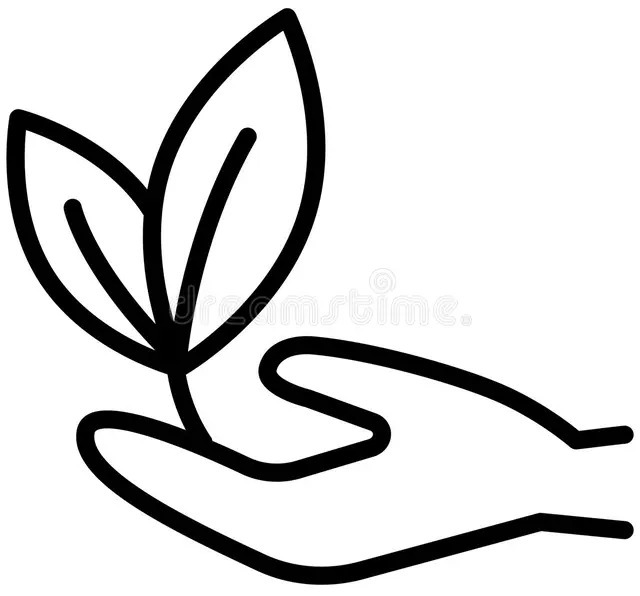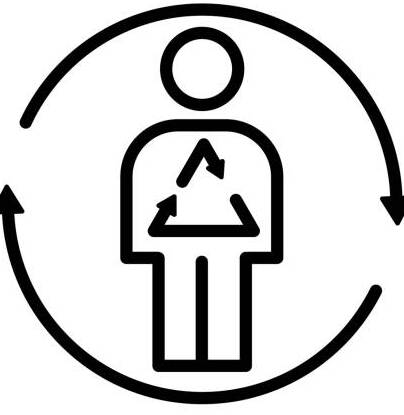Top 7 Ways to Tackle Hormonal Imbalance Naturally in 2025
- Harmony
- 5 Mins
- October 9, 2024
- Dr. Will Cole
- hormonal changes in women, natural hormone balance
Tired, moody, or gaining weight unexpectedly? You might be experiencing a hormonal imbalance, a common but often overlooked shift in women’s health. In 2025, more women are choosing gentle, natural hormone balance methods over medications.
Hormonal imbalance is more widespread than most people realise—especially among women navigating their 30s to 50s. It can quietly disrupt everything from metabolism and mood to sleep and reproductive health. And though less talked about, hormone imbalance in men is also on the rise, often linked to low energy, mental fatigue, and reduced vitality. Today, people are moving beyond quick fixes, choosing holistic approaches for natural hormone balance, supporting the body gently, effectively, and without side effects.
At Wellness Garden, Bangalore-based leading natural wellness platform. With over 600 certified experts and trusted partners, it supports women through all stages of life to address hormone imbalance in women with natural ways combining integrative therapies such as yoga, functional nutrition, acupuncture, Ayurveda, and more.

Hormonal Imbalance in Women: Early Signs Your Body Needs Support
“Hormonal health is the foundation of your overall well-being.”- Dr. Will Cole, Functional Medicine Expert
Hormones are natural chemicals released by your body that help control things like mood, energy, metabolism, sleep, skin, and reproductive health. Hormonal imbalance happens when there is too much or too little of certain hormones. In women, hormone levels normally change during times like menstruation, pregnancy, or menopause. But sometimes, long-term problems like diabetes, thyroid issues, or adrenal problems can cause hormone levels to stay out of balance.
Knowing the signs and understanding the causes of hormonal imbalance can help you take steps toward better health and natural hormone balance.
Signs & Triggers of Hormonal Imbalance in Women
Hormone imbalance symptoms women experience can vary—but some patterns are especially common:
- Chronic Fatigue: Feeling tired even after sleeping well may signal low thyroid function or elevated cortisol.
- Mood Swings, Irritability, or Anxiety: Often tied to fluctuating estrogen and progesterone levels.
- Stubborn Weight Gain: Especially around the belly—can be linked to insulin resistance or cortisol imbalance.
- Skin and Hair Changes: Adult acne, hair thinning, or unusual dryness may reflect underlying hormonal shifts.
- Irregular or Heavy Periods: Common in PCOS, perimenopause, or estrogen dominance.
- Low Libido or Emotional Burnout: May signal hormonal imbalance in men and women, often overlooked.
Common Causes
- Chronic Stress: Elevates cortisol, disrupting estrogen, progesterone, and thyroid hormones.
- Nutritional Deficiencies: Diets low in healthy fats, protein, or key micronutrients can impair hormone production.
- Poor Sleep & Inflammation: Interfere with melatonin and cortisol rhythm, impacting recovery and mood.
- Environmental Toxins: Chemicals in plastics, cosmetics, and cleaning products mimic or block natural hormones.
- Underlying Conditions: PCOS, thyroid disorders, and insulin resistance are key contributors to hormone imbalance in women—and increasingly in men too.
Wellness Garden Tip:
If you notice two or more of these symptoms regularly, it’s time to investigate further—through hormone testing, lifestyle shifts, and expert-guided natural therapies. Our specialists often see women normalise symptoms that deserve care. Early detection and consistent action are key to long-term natural hormone balance.
Top 7 Natural Strategies to Restore Hormonal Imbalance
While medications may offer temporary relief, real hormonal balance is achieved by addressing the root causes through consistent, everyday choices. These seven research-backed strategies are simple yet deeply effective. Grounded in clinical insights and global health research, they go beyond surface-level tips to support lasting, natural hormone balance for both women and men.
1. Add Healthy Fats to Your Plate
The production of estrogen, progesterone, and even testosterone begins with fats. Omega-3-rich foods like walnuts, flaxseeds, ghee, and fish nourish your endocrine glands and improve overall natural hormone balance.
Harvard research shows that healthy fats are essential for hormone production and may ease hormonal changes in women, especially around menopause or after pregnancy. This also applies to hormone imbalance in men, helping restore testosterone levels.
2. Manage Stress with Mind-Body Practices
High cortisol levels from chronic stress are one of the most overlooked triggers of hormonal imbalance. Cortisol competes with sex hormones, leading to cycle irregularities or low libido. Practices like yoga, meditation, or even mindful walks can restore your body’s stress response.
As Mayo Clinic suggests, these techniques lower cortisol naturally and support smoother hormonal changes in women and men alike.
3. Improve Sleep Quality
Sleep is when your body resets. Poor sleep leads to erratic cortisol, insulin resistance, and poor melatonin function—impacting overall natural hormone balance. This disruption contributes to hormone imbalance symptoms women commonly face, like mood swings, low energy, or weight gain.
NIH studies confirm that deep, quality sleep is essential to regulate cycles, reduce inflammation, and support both hormone imbalance in women and hormone imbalance in men.
4. Balance Blood Sugar with Whole Foods
Blood sugar spikes cause insulin resistance, which is closely linked to hormonal imbalance. This can worsen hormone imbalance symptoms women may already be experiencing, especially if dealing with PCOS or thyroid issues.
Harvard research highlights that stabilizing blood sugar improves natural hormone balance and may also reduce excess androgens in hormone imbalance in men.
5. Exercise to Boost Hormonal Efficiency
Regular physical activity doesn’t just tone muscles—it improves insulin sensitivity, reduces inflammation, and enhances hormonal signaling. Movement supports better circulation of hormones in the bloodstream and sera, improving everything from mood to metabolic function. Studies published by the NIH show that exercise influences hormone regulation, especially insulin, and positively affects reproductive health.
6. Avoid Hormone-Disrupting Chemicals
The daily products can affect hormone levels. Plastics, fragrances, and pesticides often contain endocrine disruptors that mimic or block real hormones—impacting both fertility and thyroid function.
According to the National Institute of Environmental Health Sciences, reducing these exposures helps balance estrogen and testosterone pathways, aiding natural hormone balance and protecting against hormone imbalance in women and hormone imbalance in men.
7. Stay Hydrated for Hormone Flow
Hormones need a healthy bloodstream and clear detox pathways. Drinking enough water supports kidney and liver function, which are vital for flushing out excess hormones and maintaining balance in your blood and sera.
NCBI studies show that good hydration supports hormone transport, reducing fatigue and easing hormonal changes in women. It also supports testosterone health, crucial for addressing hormone imbalance in men.
Balance Your Hormones at Wellness Garden with Holistic Therapies
At Wellness Garden, personalized sessions and immersive programs work together to gently restore hormone balance and support women at every stage of life. Each therapy is designed to nurture your body naturally, helping you feel vibrant and balanced. Our offerings include:
- Personalised Hormone Health Consultations, starting from 30 minutes, to create a tailored plan focused on your unique needs and natural hormone balance.
- Women’s Wellness Retreat, a refreshing 7-day experience combining yoga, mindfulness, gentle float therapy, and nutrition guidance to reduce stress and support hormonal health.
- Acupuncture and Acupressure, with sessions typically lasting 30 to 45 minutes, targeting key points to ease PMS symptoms, regulate hormones, and boost overall energy.
- Ayurveda and Naturopathy, using customized herbal remedies and lifestyle practices based on your body’s constitution to promote hormone regulation and detoxification.
- IV Nutrient Therapy, providing essential vitamins and minerals directly to your body to enhance hormone production and vitality.
- PMS Pain Management and Hormonal Nutrition Counseling, offering practical dietary advice and strategies to stabilize blood sugar and ease hormonal fluctuations.
- Reflexology and Herbal Steam Therapy, soothing treatments that improve circulation and support hormonal harmony.
Session lengths may vary depending on your individual condition and health goals, ensuring you get exactly the care you need.
The Importance of Addressing Hormonal Imbalance
From our energy and mood to our weight and general health, hormones greatly affect how we feel every day. You may get tired, see weight changes, or deal with PCOS or thyroid issues when they are out of balance. Early care of it will enable you to feel once more like yourself energetic, in control, and well.
Conventional Treatments for Restoring Hormonal Balance
At Wellness Garden, we focus on natural healing first, but in some cases, conventional treatments can support recovery effectively:
- Hormone Replacement Therapy (HRT):Gently eases menopause symptoms by restoring natural hormone balance, especially estrogen and progesterone.
- Birth control pills:Regulate periods and hormonal fluctuations, especially in PCOS and endometriosis.
- Thyroid medications: Always consult your physician to determine the safest combination of options.
- Fertility Medications: Stimulate ovulation to improve chances of conception in hormonal infertility.
- Insulin-Sensitising Drugs: Improve insulin response and support ovulation in women with PCOS.
Testing for Hormonal Imbalance in Women
You can gain a better understanding of your hormones through testing. blood tests to measure thyroid, progesterone, and estrogen levels. Dr. Sara Gottfried, experts in hormonal health suggests saliva tests quantify daily levels of sex hormones and cortisol. A comprehensive picture of hormone and adrenal health can be obtained from urine panels. Your balance can be gradually restored with individualised care thanks to all of these tests.
Bottom Line: Take Charge of Your Hormonal Health
A hormonal imbalance is your body’s request for balance and care, not just a temporary state. The correct combination of diet, exercise, and natural remedies can help stabilise, reduce symptoms, and promote long-term well-being in people with PMS, PCOS.
We at Wellness Garden assist you in reestablishing a natural connection with your body and overall health. We help you at every stage, from professional advice to reputable retreat programs. Start down the path to long-term equilibrium. Begin your adventure now!
FAQs
Q1. What are the first signs of hormonal imbalance in women?
Fatigue, mood swings, irregular periods, and stubborn weight gain.
Q2. Can food alone fix hormonal imbalance?
It helps, but a holistic approach combining diet, stress
Q3. Does mental health suffer too from hormonal imbalances?
Yes,hormones including oestrogen, progesterone, and cortisol have been linked to anxiety, depression, and brain fog.
Q4. Is balancing hormones dependent on exercise?
Of course. Yoga or walking are gentle movements that help control hormones and help to lower stress.
Q5. Before beginning treatment, are hormone tests absolutely required?
They benefit! Simple urine, saliva, or blood tests provide information that helps your treatment be more individualized and successful.
Q6. Does an imbalance of hormones affect hair and skin?
Yes, imbalanced androgen or thyroid levels have a direct bearing on acne, hair thinning, or extra facial hair.
- Table of Contents
- • Hormonal Imbalance in Women
- • Signs & Triggers
- • Common Causes
- • Top 7 Natural Strategies
- • Holistic Treatment by WG
- • Conventional Treatments
Recent Posts
Join Our Newsletter
End note from WG Team
WG Team
Disclaimer: This information is provided for educational purposes and should not be construed as medical advice. Please consult with healthcare practitioners before undertaking any changes in wellness routines or adding new therapies.
Latest Blogs
Check out some of your blogs related to your interest.
- March 1, 2026
- 3 Mins

- February 15, 2026
- 3 Mins
- February 7, 2026
- NIH
- 3 Mins

- January 4, 2026
- Marc Cohen, MBBS (Hons)
- 3 Mins






